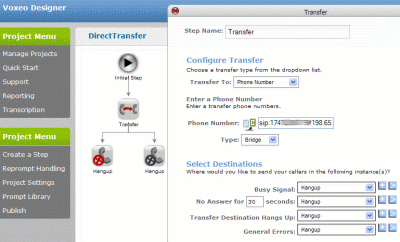TruUnlimited for Landlines
For people who need to communicate regularly with colleagues, friends or family around the world, the TruUnlimited for Landlines monthly plan gives unlimited calls to landlines in 38 countries for just £10 / $17 per month. As a bonus, the plan also permits calls to mobile phones in some top destinations such as the USA, Canada, China, and Hong Kong at no extra charge.TruUnlimited for Mobiles
For people calling mobile phones more frequently, the TruUnlimited for Mobiles monthly plan provides subscribers with unlimited calls to mobiles and landlines in 64 countries for just £25 / $40 per month.
Does anybody remember Wifimobile? They offered the same and probably went bust, at least there is nothing to be heard of them anymore.
Wifimobile started at the same time as Truphone with a similar business: VoIP calls from Nokia handsets, using an own VoIP software for Wifi. Later they introduced VoIP calls outside of Wifi via callthrough numbers, similiar to Truphone Out+ which got introduced 4 days later. Read my regarding blog post about their feature competition: Funny feature race between Truphone and Wifimobile
Wifimobile's distingushing business case from Truphone was free unlimited calls to landlines in 40 countries for $14.99/€10.99/£7.99 - which they started to offer in May 2007, similar to what Truphone announces now. They never could get enough clients because Truphone took their breath away with their introductory offer: free calls to most countries, which Truphone extened for more than one year.
Free is even cheaper than flatrate!
Wifimobile was dismayed, every time Truphone extended its introductory offer. They had no VC to compete with that. Finally Wifimobile had to surrender and went to per minute prices on a prepaid base, similar to what Truphone offered in the last months. I covered that too in a blog post: Wifimobile again outsmarted by Truphone's free offer
From Wifimobile there is nothing to be heard anymore. No PR and their website has changed. Now they offer only the callthrough option which makes them look like a cheap calling card provider. Their founder concentrates on a business which offers cheap roaming SIM cards, similar to Truphone's SIM4travel.
Why would Truphone introduce a feature which didn't help their competitor? Are those new iPhone and Blackberry users really that price insensible?
We all know that you can get the same unlimited free calls to landlines for only €2.50 ($3.31) from Voipzoom and Voipbuster. These Betamax companies undercut every price. TruUnlimited for Mobiles is only attractive for very happy users. You have to make a lot of calls to mobile until it pays off.

